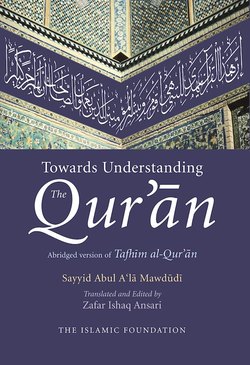Читать книгу Towards Understanding the Qur'an - Sayyid Abul A'la Mawdudi - Страница 257
На сайте Литреса книга снята с продажи.
ОглавлениеAl-Nisa’ 4: 176
(176) People ask you to pronounce a ruling concerning inheritance from those who have left behind no lineal heirs (kalalah).103 Say: “Allah pro- nounces for you the ruling: should a man die childless but have a sister,104 she shall have one half of what he has left behind; and should the sister die childless, (but have a brother), he shall inherit her.105 And if the heirs are two sisters, they shall have two-thirds of what he has left behind.106 And if the heirs are sisters and brothers, ▶
103 There is disagreement about the meaning of the word kalalah. According to some scholars, it means one who dies leaving neither issue nor father nor grandfather. According to others, it refers to those who die without issue. But the majority of jurists accept the opinion of Abu Bakr who held the former meaning to be correct. The Qur’an also seems to support this, for here the sister of the kalalah has been apportioned half of the inheritance although had his father been alive, the sister would not have inherited from him at all.
104 The apportioned shares of inheritance mentioned here are those of brothers and sisters, whether related through both parents or through a common father only. Abu Bakr gave this interpretation in one of his pronouncements and none of the Companions expressed any dissent. This view is, therefore, considered to be supported by consensus (ijma[ ).
105 This means that if there is no other legal heir the brother will receive the entire inheritance. In the presence of other heirs (such as husband), the brother will receive all the residual inheritance after the other heirs have received their apportioned shares.
106 The same also applies to more than two sisters.
208
